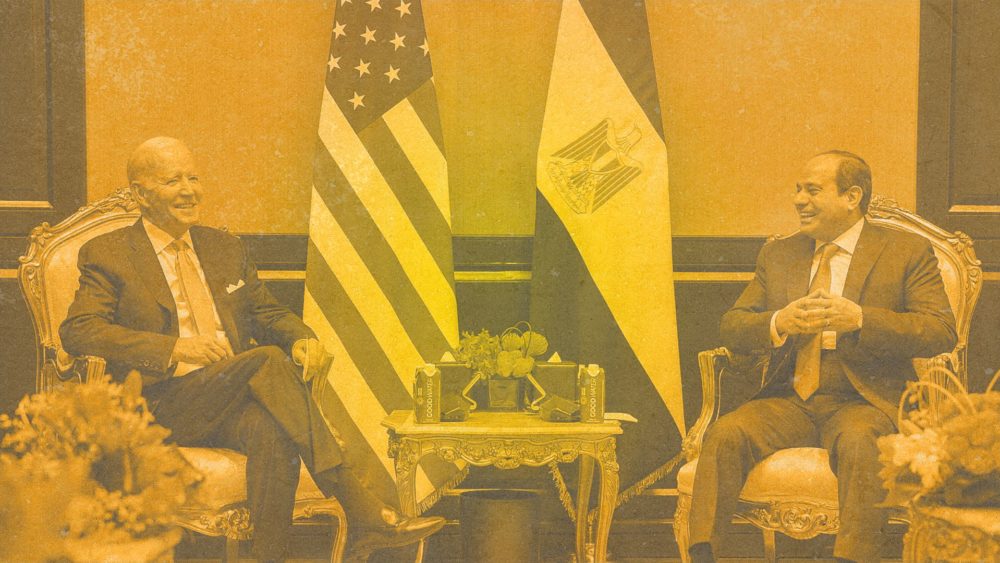What the violence wrecking communities in Northern Africa and the failed meetings at COP27 tell us about our future
On November 12, gunmen attacked a village in northern Nigeria, leaving at least 12 people dead. The massacre is the latest horrifying chapter in a host of conflicts taking place far away from the headlines of European newspapers, though they are claiming thousands of lives every year.
In Western and Northern Africa, clashes between groups of farmers and nomadic herders have been intensifying. Some of these clashes have been triggered or exacerbated by climate change, which can force herders to change their routes and compete with farming communities for water and land as a result of droughts. In a harrowing report, Mary Hommes – a woman who survived an attack on her village last year – described witnessing three women being murdered as they begged for their lives next to their babies.
While these people were being gunned down on November 12, directly east of that region in the Egyptian resort town of Sharm El Sheikh, world leaders gathered to try to solve this same climate crisis at the Coca-Cola-sponsored COP27 – in-between speeches, banquets, and press grillings on their hosts’ Western-funded, brutal record of violence and repression. A closer look at who’s attended the conference is educational.
The United Arab Emirates, whose oil exports account for 30% of its economy and who will host next year’s COP, sent the biggest delegation to Egypt, with over 1,000 members. The second-biggest “delegation” is the global fossil fuel industry: 637 representatives of the companies directly responsible for burning the planet to the ground – and who have the most to lose if we change course – were mingling behind closed doors with world leaders. That’s “more than the combined delegations from the 10 most climate-impacted countries”.
With that stage set, the first draft of the conference’s key document won’t come as a shock: There are no provisions for much-needed funding for poorer countries to assist in their just green transitions. There are no reparations to these countries for the damage already inflicted upon them. And there is no commitment to a complete phase-down of fossil fuels. In fact, the text’s bullet points read almost as a parody of carefully vague PR-speak: they “reaffirm”, “acknowledge”, “note”, “stress” and “underlie”. Nothing more.
But although turning off the tap of fossil fuels would be a fundamental step in securing the planet’s survival, that alone won’t avert the destruction of communities across the Global South. What’s set to come after that happens – green capitalism – is, in some ways, just as dangerous for groups such as those experiencing systematic violence in Africa.
Although many fossil fuel giants will keep pumping oil and gas for as long as they’re allowed, a huge amount of private capital saw the writing on the wall long ago and began scrambling for the resources and projects that will ensure that the masters and servants of the new “green” world order stays the same – projects that will exploit and displace people in the Global South to sustain the North’s imperial lifestyle. In Morocco, for instance, droughts are not the only threats to pastoral communities: massive solar plant projects, funded by equally massive foreign debt, are grabbing their land without their consent.
When people in the Global North think of the effects of the climate crisis, they tend to conjure images of the Earth taking direct revenge upon humans in the form of violent natural disasters. It’s hard to wrap our heads around everything that will ultimately be worse in the world due to capitalism’s insatiable appetite for exploitation and carbon-burning, but the farmer-herder conflicts in Africa teach an important lesson. Climate change won’t just take lives in never-before-seen floods. It won’t just sweep up entire towns and villages in apocalyptic storms. Its invisible hand will also claim lives, bit by bit, in forms that may at first glance seem far-removed from it. Raiding. Pillaging. Mothers shot next to their wailing babies.
The planet’s warming can’t be avoided anymore, but we can limit it. And, just as importantly, the richest and guiltiest nations on Earth have a debt to pay to countries such as Nigeria, so that they can support people being uprooted in the face of dwindling resources, and prevent violent struggles over them.
The settling of that debt – not pilling on top of it – is the only right thing to do.
Tune in to our COP OFF! Panel
Sign up for our COP OFF! Panel on Saturday, November 19, and Sunday, November 20 where we will talk about the ideas and principles that must guide a just green transition Join us live on YouTube on both days at 18:00 CET, and send us your questions and comments!
You can also check out our blueprint a Green New Deal for Europe which aims to unite the continent’s communities, unions, parties, and activists behind a shared vision of environmental justice.
Do you want to be informed of DiEM25's actions? Sign up here















